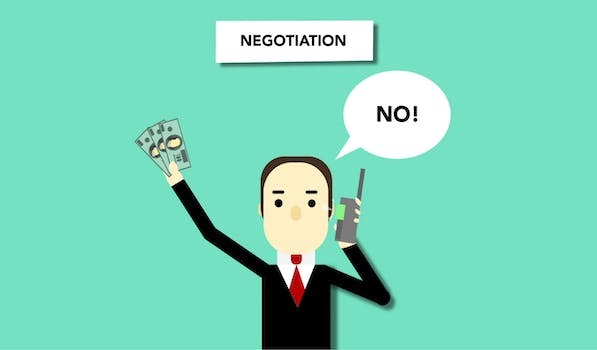How To Save Money And Stop Gambling
Introduction


Introduction: Gambling can be a fun and exciting activity, but it can also be addictive and costly. If you find yourself struggling with a gambling addiction and want to save money, there are steps you can take to break the cycle. In this article, we will discuss some tips on how to save money and stop gambling.
10 Simple Tips for Saving Money and Breaking the Gambling Habit
Gambling can be a fun and exciting activity, but it can also be a dangerous habit that can lead to financial ruin. If you find yourself struggling with a gambling addiction, it’s important to take steps to break the habit and save money. Here are 10 simple tips for saving money and breaking the gambling habit.
1. Admit that you have a problem
The first step in breaking any addiction is admitting that you have a problem. If you find yourself spending more money than you can afford on gambling, it’s time to take a step back and evaluate your behavior.
2. Set a budget
Once you’ve admitted that you have a problem, it’s important to set a budget for yourself. Determine how much money you can afford to spend on gambling each month and stick to that budget.
3. Avoid triggers
Identify the triggers that lead you to gamble and avoid them. If you find that you’re more likely to gamble when you’re feeling stressed or anxious, find other ways to cope with those feelings.
4. Find a support system
Breaking any addiction is difficult, and it’s important to have a support system in place. Talk to friends and family members about your struggles and consider joining a support group for gambling addiction.
5. Take a break
If you find that you’re struggling to break the gambling habit, take a break from gambling altogether. Give yourself time to focus on other activities and hobbies.
6. Seek professional help
If you’re struggling to break the gambling habit on your own, consider seeking professional help. A therapist or counselor can help you identify the underlying issues that are contributing to your addiction and develop strategies for overcoming it.
7. Find alternative activities
Find alternative activities to replace gambling. Consider taking up a new hobby or joining a sports team. Find activities that you enjoy and that don’t involve gambling.
8. Avoid temptation
Avoid places and situations where you’re likely to be tempted to gamble. If you find that you’re more likely to gamble when you’re at a casino or a bar, avoid those places altogether.
9. Track your progress
Keep track of your progress as you work to break the gambling habit. Celebrate your successes and learn from your setbacks.
10. Stay positive
Breaking any addiction is a difficult process, but it’s important to stay positive and focused on your goals. Remember that every day is a new opportunity to make progress and move closer to breaking the gambling habit.
In conclusion, breaking the gambling habit and saving money is a challenging but achievable goal. By admitting that you have a problem, setting a budget, avoiding triggers, finding a support system, taking a break, seeking professional help, finding alternative activities, avoiding temptation, tracking your progress, and staying positive, you can overcome your addiction and take control of your finances. Remember that breaking the gambling habit is a journey, not a destination, and every step you take is a step in the right direction.
The Psychology of Gambling Addiction: Understanding the Triggers and Overcoming Them
Gambling addiction is a serious problem that affects millions of people worldwide. It can lead to financial ruin, strained relationships, and even mental health issues. If you’re struggling with a gambling addiction, it’s important to understand the psychology behind it and learn how to overcome the triggers that lead to compulsive gambling.
One of the main triggers of gambling addiction is the thrill of winning. When you win, your brain releases dopamine, a chemical that makes you feel good. This can create a cycle of addiction, where you keep gambling in the hopes of experiencing that same rush of pleasure again. To overcome this trigger, it’s important to find other ways to experience pleasure and reward yourself for positive behaviors. This could include hobbies, exercise, or spending time with loved ones.
Another trigger of gambling addiction is stress. Many people turn to gambling as a way to escape from their problems and relieve stress. However, this can quickly spiral out of control and lead to even more stress and anxiety. To overcome this trigger, it’s important to find healthy ways to manage stress, such as meditation, yoga, or therapy.
Social pressure can also be a trigger for gambling addiction. If you have friends or family members who gamble frequently, you may feel pressure to join in and participate. However, it’s important to remember that you are in control of your own actions and can choose not to gamble. If necessary, you may need to distance yourself from people who encourage your gambling behavior.
Financial problems can also be a trigger for gambling addiction. If you’re struggling with debt or financial stress, you may turn to gambling as a way to make quick money and solve your problems. However, this is a dangerous cycle that can lead to even more financial problems. To overcome this trigger, it’s important to seek help from a financial advisor or counselor who can help you create a plan to manage your finances and get back on track.
If you’re struggling with a gambling addiction, it’s important to seek help as soon as possible. There are many resources available, including support groups, therapy, and medication. It’s also important to be honest with yourself and those around you about your addiction. This can be difficult, but it’s the first step towards recovery.
In addition to seeking help, there are also practical steps you can take to save money and stop gambling. One of the most important things you can do is create a budget and stick to it. This will help you track your spending and avoid overspending on gambling. You may also want to consider setting up automatic savings or investing accounts, which can help you build wealth over time.
Another practical step you can take is to limit your access to gambling. This could mean avoiding casinos or online gambling sites, or setting up parental controls on your computer or phone. You may also want to consider enlisting the help of a trusted friend or family member who can hold you accountable and help you stay on track.
Finally, it’s important to remember that recovery from gambling addiction is a journey, not a destination. It may take time and effort to overcome your addiction, but with the right support and resources, it is possible. By understanding the psychology behind your addiction and taking practical steps to save money and limit your access to gambling, you can take control of your life and overcome your addiction for good.
Budgeting 101: How to Create a Realistic Budget and Stick to It
Gambling can be a fun and exciting activity, but it can also be a dangerous habit that can lead to financial ruin. If you find yourself spending more money than you can afford on gambling, it’s time to take a step back and reevaluate your habits. In this article, we’ll discuss some tips on how to save money and stop gambling.
The first step to saving money and stopping gambling is to create a realistic budget. A budget is a plan that outlines your income and expenses, and it can help you keep track of your spending. To create a budget, start by listing all of your sources of income, including your salary, bonuses, and any other sources of income. Next, list all of your expenses, including rent or mortgage payments, utilities, groceries, and any other bills you have to pay.
Once you have a list of your income and expenses, you can start to create a budget. Start by prioritizing your expenses and making sure that you have enough money to cover your essential expenses, such as rent or mortgage payments, utilities, and groceries. Then, look for areas where you can cut back on your spending, such as eating out less or canceling subscriptions you don’t use.
One way to save money and stop gambling is to set aside a specific amount of money each month for entertainment. This can include going to the movies, eating out, or any other activities you enjoy. By setting a specific amount of money aside for entertainment, you can avoid overspending on gambling and other activities.
Another way to save money and stop gambling is to find alternative activities to do instead of gambling. This can include going for a walk, reading a book, or spending time with friends and family. By finding alternative activities to do, you can avoid the temptation to gamble and save money at the same time.
If you find that you’re still struggling to save money and stop gambling, it may be helpful to seek professional help. There are many resources available, such as counseling and support groups, that can help you overcome your gambling addiction and get back on track financially.
In conclusion, saving money and stopping gambling is a process that takes time and effort. By creating a realistic budget, setting aside money for entertainment, finding alternative activities to do, and seeking professional help if needed, you can overcome your gambling addiction and get back on track financially. Remember, it’s never too late to take control of your finances and start saving money.
Alternative Activities to Replace Gambling: Finding Healthy Ways to Spend Your Time
Gambling can be a fun and exciting activity, but it can also be addictive and costly. If you find yourself spending more money than you can afford on gambling, it may be time to take a step back and find alternative activities to replace it. Not only will this help you save money, but it will also improve your overall well-being.
One healthy way to spend your time is by exercising. Exercise has numerous benefits, including reducing stress and anxiety, improving mood, and increasing energy levels. You don’t have to join a gym or buy expensive equipment to exercise. Simple activities like walking, jogging, or doing yoga at home can be effective and enjoyable.
Another alternative activity is volunteering. Volunteering can give you a sense of purpose and fulfillment while helping others. There are many organizations that are always looking for volunteers, such as animal shelters, food banks, and community centers. Not only will you be helping others, but you’ll also be making new connections and expanding your social circle.
If you enjoy being creative, consider taking up a new hobby like painting, writing, or playing an instrument. These activities can be therapeutic and provide a sense of accomplishment. You don’t have to be an expert to enjoy these hobbies, and there are many resources available online or in your community to help you get started.
Spending time with friends and family is another great way to replace gambling. Instead of going to the casino, plan a game night or movie night with your loved ones. This will not only save you money but also strengthen your relationships and create lasting memories.
If you’re looking for a more relaxing activity, consider meditation or mindfulness practices. These practices can help reduce stress and anxiety, improve focus and concentration, and promote overall well-being. There are many resources available online or in your community to help you get started with meditation or mindfulness.
Finally, consider taking up a new skill or learning something new. This could be anything from learning a new language to taking a cooking class. Not only will this keep your mind active and engaged, but it can also lead to new opportunities and experiences.
In conclusion, gambling can be a costly and addictive activity. If you find yourself spending more money than you can afford on gambling, it may be time to find alternative activities to replace it. There are many healthy and enjoyable activities to choose from, including exercising, volunteering, being creative, spending time with loved ones, practicing mindfulness, and learning something new. By finding new ways to spend your time, you can save money and improve your overall well-being.
The Financial Consequences of Gambling: How to Repair Your Finances and Rebuild Your Life
Gambling can be a fun and exciting activity, but it can also have serious financial consequences. If you find yourself struggling with a gambling addiction, it’s important to take steps to repair your finances and rebuild your life.
The first step in repairing your finances is to stop gambling. This may seem obvious, but it can be difficult to do. You may need to seek professional help or join a support group to help you overcome your addiction.
Once you’ve stopped gambling, it’s important to take a hard look at your finances. You may have accumulated a significant amount of debt as a result of your gambling addiction. It’s important to create a budget and stick to it. This will help you prioritize your expenses and pay off your debts.
If you have a lot of debt, you may want to consider consolidating your debts into one loan. This can help you lower your interest rates and make it easier to manage your payments.
Another way to save money is to cut back on your expenses. This may mean cutting back on eating out, canceling subscriptions, or finding ways to save on your utility bills. Every little bit helps, and the more you can save, the faster you can pay off your debts.
It’s also important to start saving for the future. This may seem difficult if you’re struggling with debt, but it’s important to start building an emergency fund. This will help you avoid going into debt in the future if unexpected expenses arise.
One way to save money is to automate your savings. This means setting up automatic transfers from your checking account to your savings account. This will help you save money without even thinking about it.
If you’re struggling to save money, you may want to consider finding ways to increase your income. This may mean taking on a part-time job or finding ways to earn money online. Every little bit helps, and the more you can earn, the faster you can pay off your debts and start saving for the future.
Finally, it’s important to remember that repairing your finances and rebuilding your life takes time. It’s important to be patient and stay committed to your goals. With hard work and dedication, you can overcome your gambling addiction and build a brighter financial future.
In conclusion, if you’re struggling with a gambling addiction, it’s important to take steps to repair your finances and rebuild your life. This may mean seeking professional help, creating a budget, consolidating your debts, cutting back on expenses, saving for the future, increasing your income, and staying committed to your goals. With hard work and dedication, you can overcome your addiction and build a brighter financial future.
Support Systems for Recovery: Finding Help and Accountability in Your Journey to Stop Gambling
Gambling addiction is a serious problem that can lead to financial ruin, strained relationships, and even mental health issues. If you’re struggling with a gambling addiction, it’s important to know that you’re not alone. There are many support systems available to help you on your journey to recovery.
One of the most important things you can do is to find a support group. Support groups provide a safe and non-judgmental environment where you can share your experiences and receive support from others who are going through the same thing. There are many different types of support groups available, including online forums, in-person meetings, and telephone hotlines.
Another important support system is therapy. A therapist can help you identify the underlying causes of your gambling addiction and develop strategies to overcome it. They can also provide you with coping mechanisms to deal with the stress and anxiety that often accompany addiction.
In addition to support groups and therapy, it’s important to have accountability in your recovery journey. This can come in the form of a trusted friend or family member who can help you stay on track and provide encouragement when you need it. You can also consider enlisting the help of a professional accountability partner, such as a coach or mentor.
One effective way to save money and stop gambling is to create a budget. A budget can help you track your spending and identify areas where you can cut back. It’s important to be honest with yourself about your finances and to set realistic goals for saving money. You can also consider enlisting the help of a financial advisor to help you create a budget and develop a plan for paying off any debts you may have.
Another way to save money and stop gambling is to find alternative activities to fill your time. This can include hobbies, exercise, or spending time with friends and family. It’s important to find activities that you enjoy and that provide a sense of fulfillment and purpose.
Finally, it’s important to be patient with yourself and to celebrate your successes along the way. Recovery is a journey, and it’s important to acknowledge the progress you’ve made and to stay motivated to continue on your path to recovery.
In conclusion, if you’re struggling with a gambling addiction, it’s important to know that there are many support systems available to help you on your journey to recovery. Support groups, therapy, accountability partners, budgeting, and finding alternative activities are all effective ways to save money and stop gambling. Remember to be patient with yourself and to celebrate your successes along the way. With the right support and strategies, you can overcome your addiction and live a fulfilling and happy life.
The Benefits of a Gambling-Free Life: How to Enjoy a Fulfilling and Prosperous Future
Gambling can be a fun and exciting activity, but it can also be a dangerous addiction that can lead to financial ruin. If you find yourself struggling with a gambling addiction, it’s important to take steps to stop gambling and start saving money. In this article, we’ll explore the benefits of a gambling-free life and provide tips on how to enjoy a fulfilling and prosperous future.
The first step to saving money and stopping gambling is to acknowledge that you have a problem. It can be difficult to admit that you have a gambling addiction, but it’s important to be honest with yourself. Once you’ve acknowledged your addiction, you can start taking steps to overcome it.
One of the biggest benefits of a gambling-free life is the financial freedom it provides. When you stop gambling, you’ll have more money to put towards your savings and other important expenses. You’ll also be able to avoid the financial stress and anxiety that often comes with gambling.
To start saving money, it’s important to create a budget and stick to it. Make a list of all your expenses, including bills, groceries, and other necessities. Then, determine how much money you can realistically set aside each month for savings. By sticking to your budget, you’ll be able to save money and avoid the temptation to gamble.
Another benefit of a gambling-free life is the improved relationships you’ll have with your loved ones. Gambling can often lead to strained relationships, as it can cause financial stress and emotional turmoil. By stopping gambling, you’ll be able to focus on building stronger relationships with your family and friends.
To improve your relationships, it’s important to communicate openly and honestly with your loved ones. Let them know that you’re committed to overcoming your addiction and ask for their support. By working together, you can build stronger relationships and create a more fulfilling life.
In addition to saving money and improving relationships, a gambling-free life can also lead to improved mental and physical health. Gambling can be a stressful and anxiety-inducing activity, which can take a toll on your mental and physical well-being. By stopping gambling, you’ll be able to reduce stress and improve your overall health.
To improve your mental and physical health, it’s important to engage in healthy activities that promote well-being. This can include exercise, meditation, and spending time with loved ones. By focusing on your health and well-being, you’ll be able to create a more fulfilling and prosperous future.
In conclusion, stopping gambling and saving money can be a challenging but rewarding process. By acknowledging your addiction, creating a budget, and focusing on your relationships and health, you can create a more fulfilling and prosperous future. Remember, it’s never too late to start making positive changes in your life. With dedication and perseverance, you can overcome your addiction and create a brighter future for yourself and your loved ones.
Conclusion
Conclusion: To save money and stop gambling, it is important to set a budget, avoid triggers, seek support, and find alternative activities to replace gambling. It takes discipline and commitment to break the habit, but with the right mindset and strategies, it is possible to overcome the addiction and achieve financial stability.







